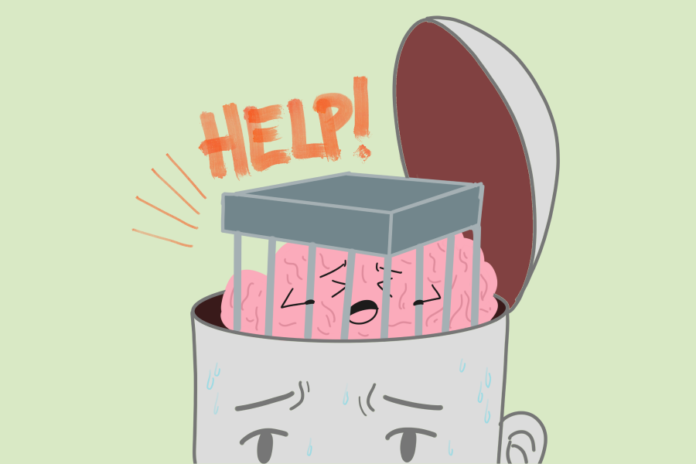The onset of decision paralysis
BY ALEX MOTAWI — almotawi@ucdavis.edu
Making confident choices and shrewd decisions is something everyone strives to reach. Making a solid choice and dealing with the consequences has been a battle humans have been fighting for the entirety of their existence, and it’s been getting more and more difficult every day. It’s easy to spot in all facets of life. Whether you are deciding how to invest your hard-earned cash, buying a pair of jeans that fits better than the rest or picking the right variety of chicken breast, the number of options we have to pick from is honestly getting excessive and just hurting my brain. Doing basic shopping used to feel therapeutic, but now even getting groceries feels stressful due to the sheer amount of options to pick from.
Being able to make choices for ourselves is one of the foundations on which our society is built. What is freedom if not the ability to make your own choices? While having the freedom to choose for ourselves is obviously something extremely valued, is there a point when it gets excessive? When you are at the front of the line trying to order some ice cream and you are starting to sweat due to not being able to choose from the 80 flavor options, it doesn’t feel all that liberating. It takes a bit of introspection to realize that more isn’t always better.
The pinnacle of research on the subject of decision paralysis is the jam study, which was published in 2000. The jam study was a grocery store experiment in which the researchers switched between offering six and 24 different gourmet jam types to sample before purchasing to try and gauge how the number of options affected purchases. You would think that offering more options would increase sales as it’s more likely each customer would find the perfect jam for them, but that couldn’t be further from the truth. While the larger selection did garner more samplers (60% versus 40% of people stopped at the booth), customers still sampled a similar amount of flavors (roughly 1.50 versus 1.38). In addition, 30% of shoppers at the smaller booth purchased jam while only 3% of browsers ended up purchasing from the booth with 24 options. The six choice station garnered 10 times as many purchases as the 24 option station. Even though having more options theoretically makes it easier to find the “perfect choice,” something about having so many options drove away purchasers.
Having more options just doesn’t make people happier, it’s that simple. Since the breakthrough jam study, similar experiments in different industries (snacks, alcohol and retirement planning) have consistently reached similar results. More options come with diminishing returns to the point that eventually fewer choices end up being better. Colin Camerer, a professor of behavioral economics at Caltech and author of a similar study, says the sweet spot for choices like jams resides in the eight to 15 range depending on the person.
Decision overload is something that weighs on everyone at some point in their life. Whether it’s a big decision that’s been dragging you down for weeks like a college commitment or job offer, or a plethora of small choices made in bulk like what to eat for breakfast every day — they add up. It’s honestly really draining and depleting to the point where you just wish someone will make the choice for you. I already have to make a litany of choices just to function every day, sometimes choosing a restaurant for date night is the straw that breaks the camel’s back. Everyone has those days, and with the way our society is trending, they will become more and more common; however, there are a few ways to make it more bearable.
I’ve found that setting a schedule is a great way to save brainpower. Instead of having an inner debate of when to wake up and eat breakfast, just set an alarm and get into the habit of making the same thing every day. Setting a morning routine can let you run on autopilot at the start of the day and save your inner battery for when it’s needed most.
On the other hand, you can just let go a bit and think less about small decisions. People (myself included) often end up looking through all the options for the “perfect choice” and end up unhappy because of it. Being good with good really is a good mindset. I personally never like to settle when I know a better option is at the tip of my tongue, but the effort spent finding the best option is rarely worth the payout. Unless there’s a drastic shift in society, decision overload is here to stay — don’t forget it.
Written by: Alex Motawi — almotawi@ucdavis.edu
Disclaimer: The views and opinions expressed by individual columnists belong to the columnists alone and do not necessarily indicate the views and opinions held by The California Aggie.




